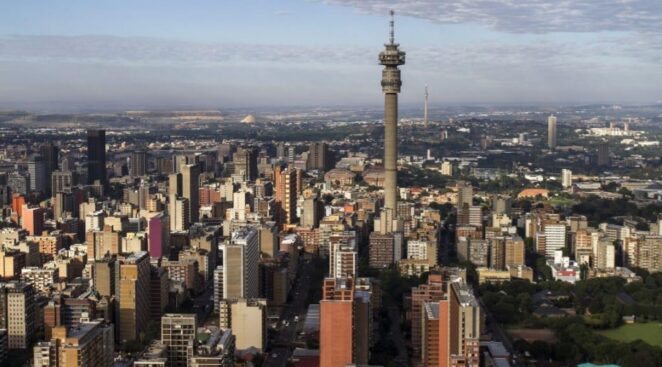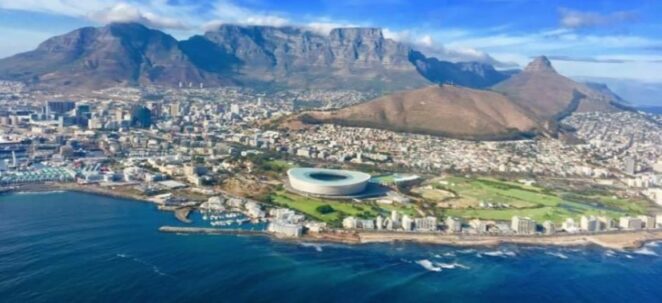Article /
City government-research partnerships: Reflections from Cape Town and Johannesburg

Introduction
In a time of climate crisis, with all the inherent uncertainty related to climate and urbanisation in southern Africa, decisions need to be made that science can’t make for city decision makers, particularly related to tradeoffs. Using a drought – like the one experienced in Cape Town between 2015 and 2018 – as an example, such questions include: should we invest in infrastructure to increase water supply this year? Should we adopt a more cautious waiting approach and hope for good rains next year? Or should we wait to decide when science provides more certain information? There’s a significant level of risk, fear and uncertainty related to any decision.
How can city government-research partnerships contribute to developing adequate and actionable responses? How does one go about unpacking climate-related issues between researches and city government officials and politicians?
This briefing note provides key discussion points from the fourth FRACTAL learning webinar, during which the team reflected on city government-research partnerships. Representatives from two cities involved in the FRACTAL project in a self-funded capacity, Cape Town and Johannesburg, reflected on different experiences across the cities, and thought about how these relationships contribute to building climate resilience going forward.
The City of Cape Town and University of Cape Town have a long-standing relationship that has evolved over time, and have actively been engaged in processes of co-producing knowledge since 2008, and the FRACTAL project has built on this. As for the relationship between the City of Johannesburg and the Global Change Institute at Wits university, the co-production for climate knowledge has been developing over two years. Both relationships seem to have resulted in real benefits.
Read more about the FRACTAL principles of transdisciplinarity, co-production and co-exploration here. City government-research partnerships can take the form of Embedded Researchers. Read more about the intricacies of Embedded Researcher arrangements, their benefits and challenges, and the lessons learnt here.
*Download the full briefing note from the right hand column. The key messages from the report are provided below. See the full text for much more detail.
Lessons Learnt
What has the relationship taught academics?
Research teams often enter a decision context with a strong climate change agenda, which does not align with those that have been developed and implemented in a city on a day-to-day basis. True co-production means understanding the workings of a city thoroughly before intersecting climate concerns.
- Questioning needs to happen about the ethics of producing or co-producing climate knowledge for decision making.
- It is also important to remember that different groups of people working within the city and informing decisions have varying mental models.
- We should be focussing on creating joint storylines or narratives of the future that contain different types of knowledge, including climate science.
What is the methodology used in Johannesburg to unpack climate related issues between researches and city government?
The Cultural Historical Activity Theory (CHAT) supports building relationships and understanding by surfacing contradictions within a “system”. It enables identification of aspects that are not currently working and drives change. This process is ongoing as more people are brought into the conversation, more contradictions are surfaced and more actions to resolve contradictions are co-designed.
Quick answers are often requested for burning issues related to the intersection of climate with city decision making; this is a tension that they need to face and manage.

How has the relationship between the City of Cape Town and University of Cape Town contributed to responding to the drought? Has the drought taught us anything important about the relationship going forward?
The relationship has been both essential and insufficient. Competing narratives were growing among the public (e.g. the City of Cape Town has not made strong enough decisions, the City of Cape Town has overreacted). The relationship has helped:
- a deeper understanding of the decision-making processes involved in responding to the crisis.
- the City of Cape Town to become more comfortable with aspects of uncertainty.
- to build resilience based on the general trends without necessarily homing in on the details of the future.
Pre-existing relationships that were built between the City of Cape Town and University of Cape Town supported their working together during the time of crisis and afterwards.

Do large research conferences, and information shared during these, contribute to decision making on the ground?
It allows those involved to take a step back from everyday work as an official and think through things more reflectively. It provides the opportunity to reframe some of the work or compare actions and responses with how others are doing so.
How do specific individuals or champions play a role in these relationships, and climate-related work?
It is important to have people who are proficient in the academic and practitioner world; and multiple champions operating at different levels and scales.
How does academia and city government team up to measure resilience?
How to measure resilience as an outcome is not very useful especially in complex, heterogeneous spaces such as cities because the resilience process is ongoing. A resilient city is one that is more dynamic and responsive.
Learning processes help to build relationships as well as understanding that contributes to this responsiveness.
The learning process has built confidence within city officials to work beyond their silos and take a more holisitc approach than their narrow mandates and budgets.
How do we sustain the city government-research partnerships outside of projects?
With the idea of the ‘critical friend’, which is both the research organisation and the city government for one another. On the one hand, the city learns about itself through constructive research undertaken by the research institution. On the other hand, the university learns about the value of academic research and how research should evolve to respond to real-life needs.
These organisations can continue to be ‘critical friends’ outside of projects through the development or strengthening (and resourcing) of platforms within and across cities and institutions.
NOTE: for more details on the points made above download the full document. You might also be interested in ‘Harare, Windhoek, Lusaka and Durban share lessons and transferable practices for increasing city resilience planning‘, as well as the report entitled ‘Unpacking the Cape Town Drought:Lessons Learned‘ by Gina Ziervogel for Cities Support Programme, February 2019.
This briefing note was produced by Alice McClure, from the Climate Systems Analysis Group, University of Cape Town, with inputs from Amy Davison (City of Cape Town) and Coleen Vogel (Global Change Institute).
These knowledge products have been developed to share findings from the research in the hope of fostering dialogue and eliciting feedback that strengthens the research. The opinions expressed are those of the author(s) and are not necessarily shared by DFID, NERC or other programme partners.
Suggested citation
Future Resilience of African CiTies and Lands (2018) City government-research partnerships: Reflections from Cape Town and Johannesburg. Future Resilience of African CiTies and Lands: Cape Town, South Africa.
Related Articles
- FRACTAL project website
- FRACTAL: Future Resilience for African Cities and Lands
- Co-producing climate knowledge – Great in theory, but how about practice?
- Africa's Climate: Helping decision-makers make sense of climate information
- Transdisciplinarity, co-production, and co-exploration: integrating knowledge across science, policy and practice in FRACTAL
- An Embedded Researcher approach to integrate climate information into decision making in southern African cities: lessons from F
